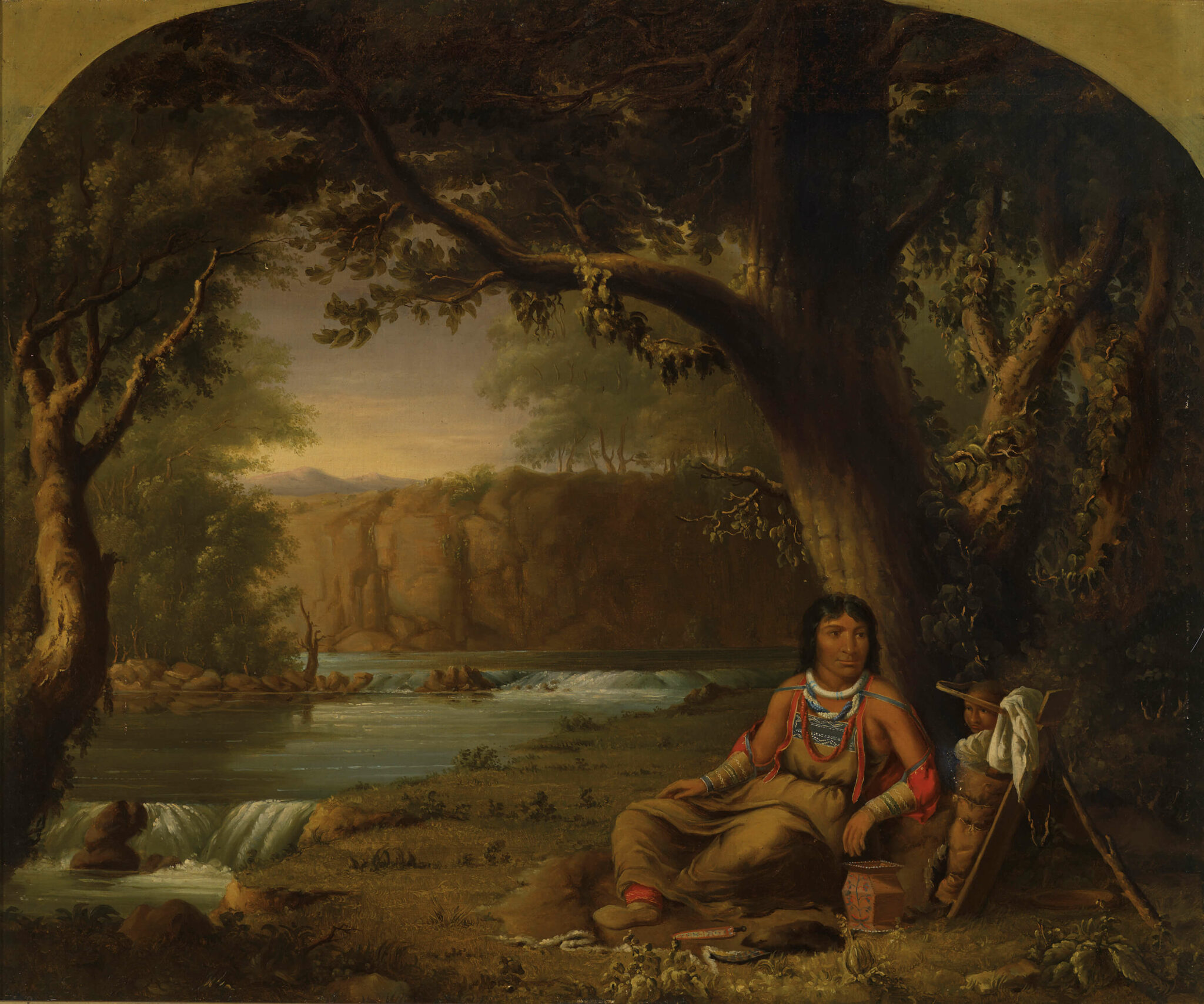The Constant Sky c. 1849–56

Paul Kane, The Constant Sky, Saulteaux, c. 1849–56
Oil on canvas, 63.5 x 76.2 cm
Royal Ontario Museum, Toronto
The Constant Sky projects the quintessential Romantic ideal that equates pristine nature with “primitive man.” An Aboriginal woman, The Constant Sky, sitting on an animal skin, leans against a tree trunk, her child by her side. The massive tree, with its intertwining branches, vines, and protective leaf canopy, suggests an ancient and unspoiled landscape. It is an idyllic locale, where a mirror-like river and the modest waterfall suggest the calm and comforting sounds of nature that reassure The Constant Sky of her way of life. For all the assumptions made during Kane’s time about the Aboriginal people being a “vanishing race,” one wonders if Kane’s image is meant to be an affirmation of the permanence of the Aboriginal presence. Seen from a nineteenth-century perspective, the early morning light in this painting alludes to the future, underscoring the idea of continuity that is implicit in both the woman’s name and the presence of the child.
Kane may have drawn on several different personal experiences to create this painting; he apparently relied on sketches of landscapes, figures, and cultural objects from different regions and tribes. Ultimately Kane’s random borrowing from his own field sketches is moot, as his goal was to transcend the particular and capture an essential moral truth. Kane’s Arcadian landscape, framed by a painted, decorative arch of gold, offers a meditation on the ideal communion between humankind and nature, which at the time was thought to be manifest in the lives of the Aboriginal people.

 About the Author
About the Author
 More Online Art Books
More Online Art Books
 Acknowledgements
Acknowledgements